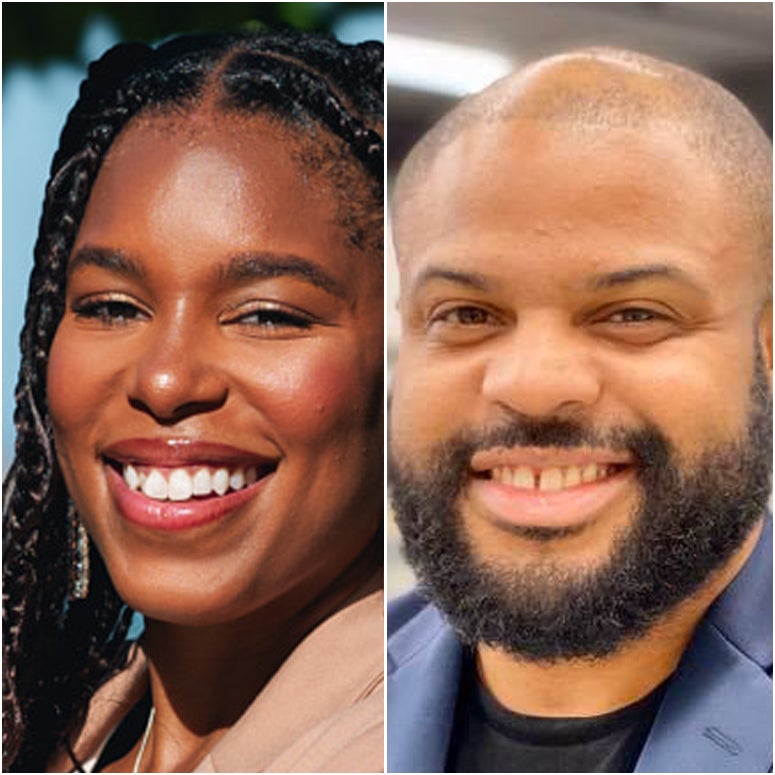Fittlingly, marine biologist Joyah Watkins learned she’d won Rice’s first prestigious Gilliam Fellowship while she was wrapping up a workshop she’d planned and led to introduce college students in Puerto Rico to career possibilities in marine science.

Unlike most graduate fellowships, Gilliams recognize a student’s commitment to advancing equity and inclusion in science as well as their scholarly research. Awarded annually by the Howard Hughes Medical Institute (HHMI), the fellowships include three years of financial support towards a student’s dissertation research. They also recognize the importance of mentorship in that they are awarded jointly to both a student and their faculty advisor, which for Watkins is Biosciences’ Kory Evans.
Watkins, who studies ocean viruses and the roles they play in coral reef ecosystems, is a fourth-year Ph.D. student majoring in ecology and evolutionary biology.
“Aside from the opportunity of doing the research that I want to do, it opens the door for me to form professional relationships, to build a supportive network and to learn how to communicate my science effectively,” Watkins said. “I've heard so many great testimonies from Gilliam Fellows about how they felt supported and were able to learn so much.”

Watkins and Evans are among 50 student-advisor pairs awarded Gilliam Fellowships in 2024. The program provides student fellows with leadership training, professional development and opportunities to engage with and learn from peers, program alumni and HHMI scientists. Gillam advisers participate in an intensive, one-year mentorship skills development course and receive support to promote healthy and inclusive graduate training environments at their home institutions.
Evans said he’s looking forward to the training but is especially excited about the recognition for Watkins.
Joyah’s research program is super cutting-edge,” Evans said. “It’s asking these really, really interesting questions. While I have grant funding to investigate some of them, the fellowship will allow her to answer more.
“And it is really awesome to have Joyah leading the charge on this,” Evans said. “Usually, when people work really, really hard, they get the things they work for. Seeing that actually play out for Joyah is just so incredibly validating. My whole approach now is to just kind of fan the flames and give her what she needs so that she can just take off. And it’s really exciting to be able to do that.”

For her Ph.D., Watkins is collecting and analyzing samples from Puerto Rican reef fishes to compile a virome, a comprehensive record of viruses in the environment.
“When people hear ‘virus,’ they often think of disease, but viruses can play a variety of roles in their hosts,” Watkins said.
Viruses can harm when they cause disease, and can sometimes benefit their hosts, but scientists believe the majority are commensal, meaning they neither help nor harm. Watkins said one of the questions she’s interested in addressing is how climate change might alter those roles. For example, as oceans warm, viruses could become agents for good, benefiting their hosts, or they could become vectors for disease.
“Viruses are extremely diverse,” she said. “They are diverse in their genetic material. They’re diverse in their structure. We, as researchers, don’t fully understand everything viruses are doing in the ocean. But despite the challenges, it is also extremely important given the climate crisis. Coral reefs harbor all of these different organisms, and it’s really important to investigate what viruses might be doing.”
Another prong of Watkins research is focused on community climate action.
The community side of the project is more about working with local researchers, activists and stakeholders here in Puerto Rico to get this research done,” she said. “The Gilliam is so fitting for my work, because it allows for inclusivity and diverse perspectives and methodologies.
“What we’ve seen historically in science is a lack of working with the community,” Watkins said. “The fellowship will also allow me to build trust with the community by making it possible for me to live in Puerto Rico for a significant portion of my Ph.D.
It will allow me to work with people here in Puerto Rico, like fish biologists that understand the species and reefs I’m working with,” she said. “The Gilliam will allow me to follow a process that feels more authentic and ethical, because I won’t have these very strict timelines that I would normally have in the field.” Importantly, the fellowship will also allow her to give back to the community in Puerto Rico. That will come in the form of sharing her research results, and sharing her expertise and enthusiasm for marine science.

Watkins is no stranger to science outreach, and the summer workshop was her most ambitious and rewarding effort yet. Olas de Cambio, which is Spanish for Waves of Change, was made possible by Wagoner and Expanding Horizons fellowships from Rice. The weeklong course provided 18 students from five Puerto Rican universities with training and education in marine conservation, molecular biology and climate action research.
“It was so impactful and inspiring in so many ways,” Watkins said. “It really affirmed why it’s important for me to be here and doing this research, because there’s so much to share with the community and especially students that are aspiring to be marine biologists.”
She said she hopes that her winning the Gilliam Fellowship may inspire others too.
I hope the fellowship, and the work that I do with it, will inspire people who look like me, people of color, women of color, to continue in grad school and to even apply to this fellowship.


